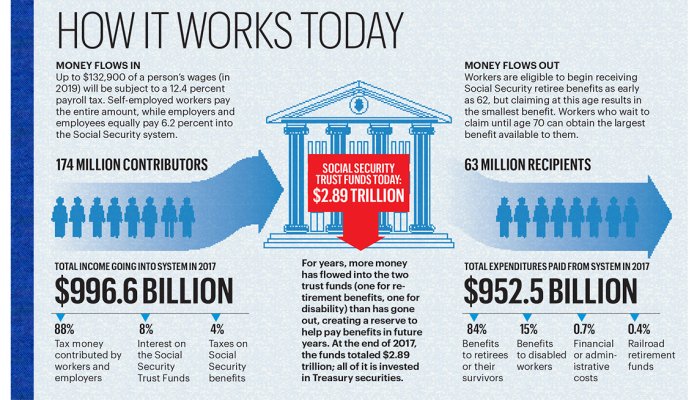Means testing Social Security would fundamentally change it from social insurance (a universal system of benefits earned by all who have paid in) to welfare (a system requiring you to prove you are needy in order to qualify for benefits). As social insurance, Social Security provides a foundation of retirement security, family life insurance, and disability income protection for virtually all American workers. Benefits are an earned right based on earnings from which premiums are deducted, as payroll taxes. Social Security uses an earnings replacement concept, recognizing that there is a relationship between your standard of living while working and the benefit you need in order to achieve income security in retirement. The benefit formula already replaces a higher portion of past earnings for low earners than for higher earners. Means testing would violate many of the key principles that have made Social Security so effective and popular for 77 years. For example:
- A means test is a penalty on thrift. It creates a huge disincentive for people to save, buy other insurance, or work part-time in retirement; or for employers to provide pensions to their workers. With a means test, anything else you have reduces your benefit amount.
- A means test undermines the principle that benefits are an earned right. It destroys the link between premiums paid from wages and the benefits that are designed to replace part of those wages.
- A means test would be far more intrusive and expensive to administer than Social Security is today. Applicants for benefits would have to undergo investigations of their income and asset holdings, possibly including the income and assets of others in their households. Investigations would have to be updated frequently as income and wealth change, and benefit levels would have to be adjusted accordingly.
Most important, means testing would likely cut benefits for the broad middle class, because only a very small share of benefits goes to wealthy people. Only 2 percent of benefits are paid to people with more than $100,000 in other income. One plan, which features means testing and other Social Security benefit cuts, illustrates the problem. This plan would shrink total Social Security benefits paid by 45 percent over 25 years. To cut spending so much—especially when the baby boomers will be in their 70s and 80s and counting heavily on Social Security—would mean deep cuts for middle-class retirees, such as nurses, teachers, firefighters, office workers, and small-business owners.
Means testing Social Security would undermine much of its core strength, turning it into an unpopular welfare program while sharply reducing the adequacy of Social Security benefits for middle-class baby boomers and younger American workers.

